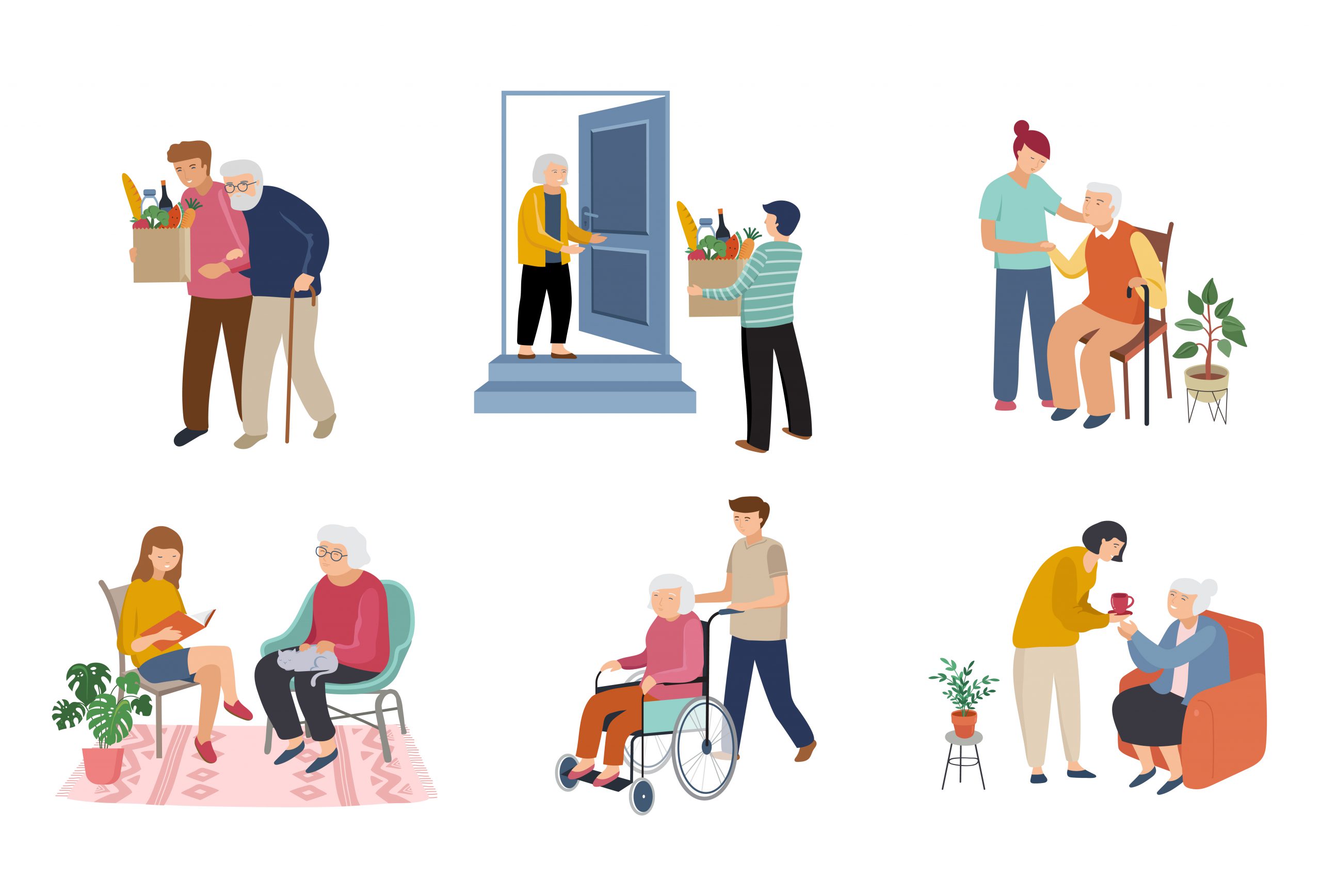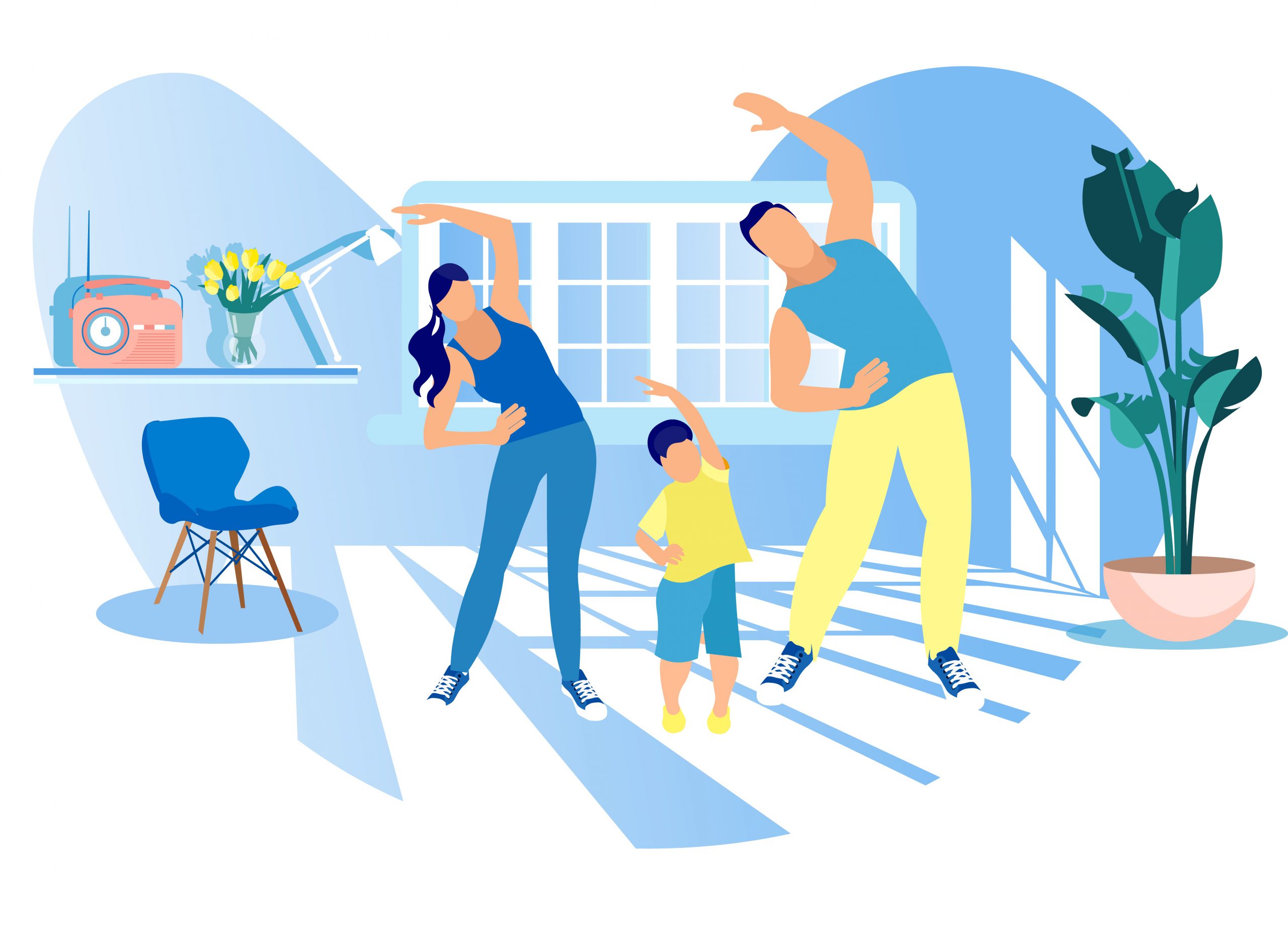In the last EDIT Lab blog post, Jess interviewed four mental health clinicians about the way in which the COVID-19 pandemic might be influencing symptoms of anxiety of depression. In this blog post, she continues the conversation with Dr Georgina Krebs, Dr Victoria Rodriguez, Dr Evengelos Vassos and Dr Richard LeBeau, this time focusing on the things we can do to try to protect our mental health during these unprecedented times.
In the last EDIT Lab blog post, I interviewed four mental health clinicians about the way in which the COVID-19 pandemic might be influencing symptoms of anxiety of depression. In this blog post, I continue my conversation with Dr Georgina Krebs, Dr Victoria Rodriguez, Dr Evengelos Vassos and Dr Richard LeBeau, this time focusing on the things we can do to try to protect our mental health during these unprecedented times.
“The lockdown seems to be proving stressful and anxiety-inducing for individuals who have no underlying mental problems. What coping mechanisms would you suggest to these individuals to help keep depression and anxiety symptoms to a minimum?”
Dr Rodriguez emphasised that coping mechanisms will differ depending on individual needs. Both she and Dr Vassos spoke about the importance of seeking out strategies to substitute the loss of social life. This may come easily to younger sections of the population, but may be less intuitive for the elderly. In this sense, we should all try to be active in keeping contact with our friends and relatives, especially those who are not well acquainted with modern technologies or who live alone. Dr Rodriguez has noticed a marked increase in the use of family video-calling sessions (including grandparents). This can be an effective way to combat symptoms of anxiety and depression in eldery people, a demographic group who are at high risk of loneliness. Since social support from friends and family can make an enormous difference to our emotional wellbeing, Dr Krebs mentioned that if you are starting to feel stressed or low it is a good idea to try to arrange a chat with somebody you are close to.
 All three clinicians heavily emphasised that putting effort into establishing daily schedules is paramount for maintaining emotional wellbeing. Leisure time is hugely important for enabling people to relax and maintain a clear distinction between work and free-time. Dr Rodriguez mentioned an interesting phenomena she has observed since lockdown began is the uprising of overly-ambitious goals and targets as a way of making sense or gaining some profit from having more time for ourselves. However, this can lead not only to a sense of failure if the goals are not achieved, but also acts as a barrier to accepting that it is normal to experience lower mood and motivation on some days. Dr Krebs highlighted the importance of looking after ourselves and paying attention to our emotions during this period. She emphasises the need to be kind to ourselves and acknowledge that if we are struggling, that is ok and normal, and it doesn’t make us weak.
All three clinicians heavily emphasised that putting effort into establishing daily schedules is paramount for maintaining emotional wellbeing. Leisure time is hugely important for enabling people to relax and maintain a clear distinction between work and free-time. Dr Rodriguez mentioned an interesting phenomena she has observed since lockdown began is the uprising of overly-ambitious goals and targets as a way of making sense or gaining some profit from having more time for ourselves. However, this can lead not only to a sense of failure if the goals are not achieved, but also acts as a barrier to accepting that it is normal to experience lower mood and motivation on some days. Dr Krebs highlighted the importance of looking after ourselves and paying attention to our emotions during this period. She emphasises the need to be kind to ourselves and acknowledge that if we are struggling, that is ok and normal, and it doesn’t make us weak.
All three clinicians suggested that we practice self-care by making sure we eat well, exercise and stick to healthy sleeping habits. Dr Vassos and Dr Rodriguez recommend looking for alternative ways to exercise indoors, which will not only contribute by increasing the release of endorphins, but also has important implications for good sleep hygiene. Additionally, they recommend paying attention to what we eat, do your best to maintain a balanced diet and avoid drinking too much alcohol at home.
 Lastly, for people who are feeling very worried about COVID-19 itself, both Dr Vassos and Dr Krebs mentioned that it is a good idea to keep a check on how much you are reading about it in the media or watching on television. Over-exposure to news on the pandemic can be highly stress- and anxiety-inducing. Therefore, it is important to strike a balance that is right for you; keep up to date but be mindful of the impact on your mental health. If you feel stressed or upset by news coverage, then limit the amount that you check it, for example, to once a day.
Lastly, for people who are feeling very worried about COVID-19 itself, both Dr Vassos and Dr Krebs mentioned that it is a good idea to keep a check on how much you are reading about it in the media or watching on television. Over-exposure to news on the pandemic can be highly stress- and anxiety-inducing. Therefore, it is important to strike a balance that is right for you; keep up to date but be mindful of the impact on your mental health. If you feel stressed or upset by news coverage, then limit the amount that you check it, for example, to once a day.
For those who are looking for coping strategies, Dr LeBeau’s team at UCLA, partnership with Beyonce’s BeyGood Initiative, has created a whole platform to teach evidence-based coping skills to people struggling with the stress of COVID. You can check them out here: http://www.ucla.edu/stand-together/
“What aspects of the lockdown do you think will have a positive impact on people’s mental health?”
Dr Krebs mentioned that while there is (understandably) a lot of focus on the negative impact of lockdown on mental health, some people have experienced a positive effect. This is evidenced by the preliminary results from the RAMP study, which show that a small minority (7%) report an alleviation of depression and anxiety symptoms.
Dr Vassos pointed out that certain groups may be thriving during the lockdown. For instance, those who find little enjoyment in maintaining a social life or those who find face-to-face interactions stress-inducing, may be experiencing a significant amount of enjoyment from the lockdown. Likewise, individuals who focus better and are more productive when working from home, due to fewer distractions, may be feeling particularly positive about the current situation.
Additionally, Dr Krebs noted that some people will benefit from the slower pace of life. For example, not having to spend hours a day commuting or rushing around at the weekend may reduce stress levels. Dr Vassos spoke about the unique opportunity afforded by the lockdown to pause, “take a breather” and notice the smaller things in life. He mentioned that people are often very focused and path-driven, which can lead to stress or “burn out”. Taking a mental break from this may have a number of positive impacts on mental wellbeing. Dr Rodriguez believes in the beneficial effect of meditation, particularly the act of stepping back from our hectic daily lives.
“Unique opportunity afforded by the lockdown to pause, “take a breather” and notice the smaller things in life.”
Dr LeBeau added that one area with the potential for a great deal of positivity is on interpersonal relationships. People have had to break out of their typical routines and find novel ways of interacting with one another. Additionally, people who have been out of touch for a long time have prioritized getting in touch to check on one another. And people are showing support for family, friends, coworkers and neighbors in touching ways. In this sense, the pandemic does have the potential to bring people together. Dr Krebs agreed, stating that lockdown has also meant that people are spending more time with family members. Although this might feel challenging at times, it has also been an opportunity for many families to reconnect and build stronger relationships, between partners, parents and children, and siblings.
“The pandemic does have the potential to bring people together.”
Similarly, another important positive change associated with the pandemic, mentioned by both Dr Vassos and Dr Krebs, is the strong sense of community that has been emerging in many places where there has been a sudden surge in neighbourly support and interaction. This increased social support and kindness may benefit many people’s mental health, especially those living alone who had previously had little involvement with the local community. The RAMP Study has certainly seen many local acts of kindness, with people reporting shopping locally, running errands or cooking for a neighbour, or joining a local mutual aid group. Dr Vassos also said that some people may have found a new purpose and sense of self-worth through volunteering with COVID-19 mutual aid groups or other charitable organisations to support the vulnerable during this time. Preliminary results show that many participants have been donating to or volunteering for charities, which may result in significant benefits for individual happiness and wellbeing.
To end this blog post on a positive note, Dr Rodriguez suggested that the lockdown, and pandemic more broadly, may help many people face any personal problems with more resilience in the future. Therefore, while the current situation may be distressing, the coping strategies that we are all learning and practising on a daily basis may be beneficial for overcoming obstacles in the future and contribute to better overall emotional awareness and wellbeing.

